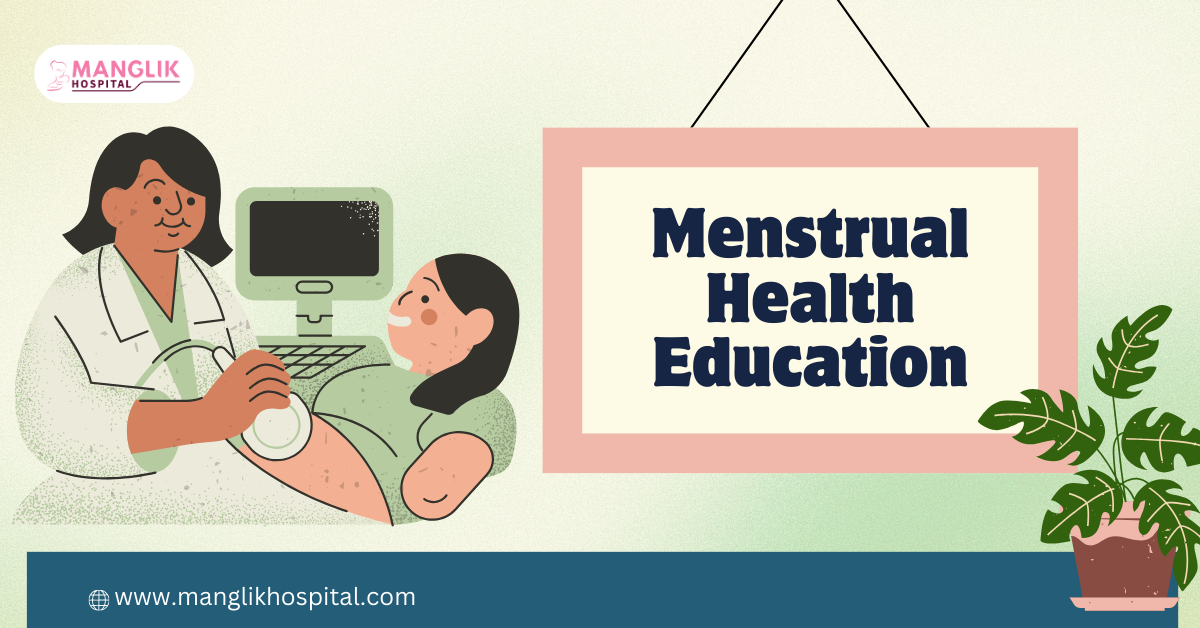
Introduction
For half of the world’s population, menstruation is a normal aspect of life. However, there is still a need for greater discussion on the relationship between menstrual health education. We’ll look at how menstruation health impacts girls’ education in this blog article, and we’ll talk about how important it is for schools to address this problem.
Table of Contents
The Global Reality
Menstruation has an impact on girls’ attendance and participation in school all over the world. Let’s talk about some startling data:
In Sub-Saharan Africa: 10% of girls miss school after their first menstruation. Menstruation causes one to four missed school days each month for about half of Ethiopia’s female students.
India: Unusually, one in five females suddenly leaves school after receiving her period. This shows the great effect that menstruation has on girls’ educational paths.
United Kingdom: The problem still exists in industrialised nations. According to a Plan International research, 13% of girls aged 14 to 21 missed a whole school day at least once a month, and 64% of girls aged 14 to 21 missed part or all of a day because of their period.
The Role of Schools
So, what can schools do to address this challenge? Here are some necessary steps:
Awareness and Education
In order to promote awareness about menstruation health and hygiene, schools are necessary. By giving girls thorough information about sexual and reproductive health, schools enable them to make informed decisions about their bodies and menstruation. Creating a supportive workplace requires breaking the taboo and stigma associated with menstruation.
Availability of Sanitary Goods
Girls must have access to high-quality sanitary goods. Schools can work with neighbourhood corporation or governmental bodies to guarantee that girls have access to menstruation products at a sensible or free cost. Providing a consistent supply of tampons or pads, along with menstrual health education including the significance of exercise in pregnancy. enables girls to smoothly manage their periods. A consistent supply of tampons or pads enables girls to smoothly manage their periods.
Matter of Facilities
Sufficient facility are essential. What should schools take into report is this:
Separate Toilets: Male and female students must have access to separate restrooms in schools. Still, having a separate bathroom is insufficient. Water availability, safety, cleanliness, and privacy are important. To keep oneself clean, one needs soap and running water.
Lockable Doors: Toilet latrines should have doors that correctly close and lock in order to improve privacy. Girls will feel safe and at ease during their menstruation thanks to this.
Correct Disposal: Facilities for the proper disposal of sanitary items are required. Toilets in schools must have bins for getting rid of spent tampons and pads.
Education for Teachers
Menstrual health education is necessary for teachers. While it’s important to understand the science of menstruation, educators should also focus on symptom management including problems like managing white discharge and student support. Teachers are essential in fostering an environment that is both educated and positive.
Dealing with Shame
Menstrual stigma can result in dishonour and mocking. Schools ought to make a concerted effort to remove these barrier. Campaigns, workshops, and open dialogues can help normalise the subject and reduce stigma and addressing related concerns like proper hydration for vaginal health.
Menstrual Poverty and Academic performance

Challenges Faced by Girls
Financial controls: Buying menstruation products including birth control pills is a challenge for many girls and their families. Menstrual hygiene may be affected as a result of the high expense of pads, tampons, or menstrual cups. Girls may turn to using unsanitary covers like old rags or leaves when they don’t have access to these necessities, which can lead to irritation and illnesses. Giving complete menstrual health education can allow girls to make well informed choices about their menstrual hygiene, making sure that they understand the importance of proper products and practices for their well-being. This education should also surround arguments about birth control options, making sure that girls have complete knowledge to support their reproductive health.
Missed School Days: Leukorrhea before period can contribute to the challenges girls face during their menstrual cycle. just because of pain, discomfort, or concern about leaking, girls frequently miss school during their periods. Over time, these lost days add up and prevent their academic progress. Girls may have academic problems that result in poorer grades and reduced self-esteem.
Shame and Stigma
Cultural prohibition: Myths and cultural restrictions continue to surround menstruation. It might be embarrassing or shameful for girls to talk openly about their periods. Their engagement in class activities may be delayed and they may become isolated as a result of this stigma. In places like Lucknow, where access to assets and information may differ, finding guidance from the best gynecologist in Lucknow can be crucial.
Teasing and Bullying: Girls who get stains or leaks throughout their menstrual cycle may be teased or bullied by their peers. In such conditions, having access to professional guidance from the best gynecologist in Lucknow becomes crucial. Their desire to regularly attend school and their sense of self-worth may be affected by this critical social experience.
Empowering Girls Through Menstrual Health Education
Education regarding menstrual health is essential for empowering people in general and young girls in particular and for fostering overall well-being. Let us examine the significance of this and its potential benefits for women’s health.
Solutions and Best Practices
Interventions in Schools
Education on menstruation Hygiene: Schools ought to include in-depth lessons on menstruation health in their subjects. This require eliminate myths, encouraging good attitudes, and educating females about menstruation hygiene.
Hygiene Facilities: As was already discussed, having the right facilities is essential. Clean, private restrooms with running water, soap, and waste cans must be provided by schools. Schools can also give females who forget or run out of items emergency menstruation supplies.
Sensitization of Teachers: Teachers must be trained in sweetly handling menstrual health concerns. They can be extremely important in fostering a nurturing atmosphere and speaking out for the needs of girls.
Community Engagement
Parent and guardian participation: Schools can hold conversations with parents and guardians around menstrual health. Families’ involvement helps to pull down obstacles and promote understanding.
Community Workshops: Putting on seminars or raising awareness through community campaigns might help normalise the discussion of menstruation. Girls experience less loneliness when everyone recognises its importance.
Conclusion
Menstrual health is a social and educational concern as well as a biological process. Education institutions may empower girls, increase attendance, and enhance overall academic results by placing a higher priority on managing menstrual hygiene. Let’s carry on the discussion, break stereotypes, and build a society in which a girl’s period doesn’t prevent her from going to school.
FAQS
1.What is menstrual health education and why is it important?
Ans-Menstrual health education teaches about periods, hygiene, and anatomy, crucial for safe management and health while breaking taboos.
2.How does menstrual health education impact academic performance?
Ans-It reduces absence and irritation in school, enabling better focus and participation among students.
3.What challenges do students face in accessing menstrual health education?
Ans-Limited programs, cultural taboos, and economical barriers interfere with access to education and hygiene products.
4.How can schools integrate menstrual health education into their curriculum?
Ans-They can include it in health or biology classes, encourage open discussions, and provide hygiene products.
5.What are the long-term benefits of investing in menstrual health education?
Ans-Improved health, reduced absence, better academic performance, and enhanced gender equality result from such investments.
